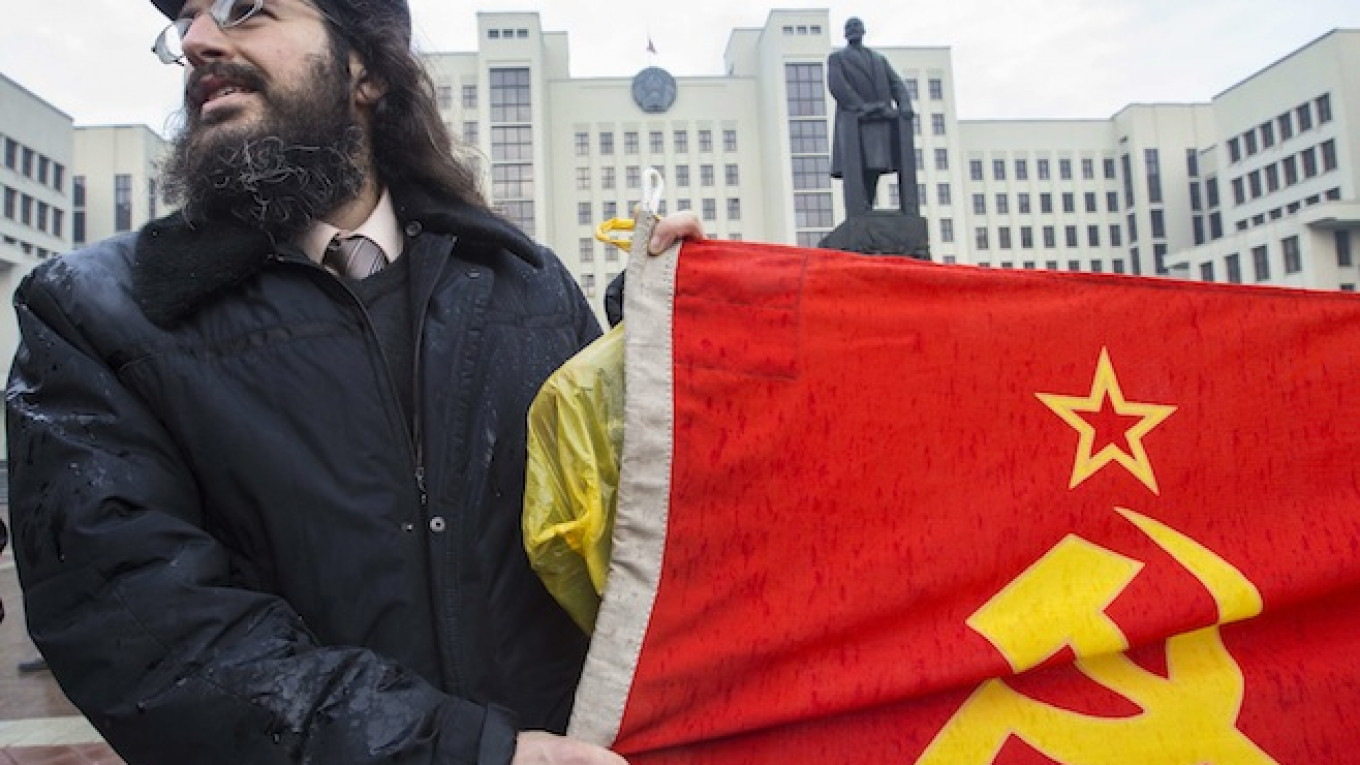More Russians blame the collapse of the Soviet Union on a "conspiracy" of hostile Western forces than seven years ago, in a sign the wave of anti-Western state media coverage unleashed during the Ukraine crisis is influencing Russians' view of the past.
A report published Monday by independent pollster Levada Center showed the number of Russians who blamed the Soviet Union's demise on the West had risen to 28 percent from 16 percent seven years ago.
A majority of those questioned, or 54 percent, regretted the collapse of the regime, while 28 percent held no such grief, independent Levada Center pollster said.
In a question that allowed for multiple answers, the most popular explanation for the collapse of the Soviet Union, chosen by 30 percent of respondents, was the "irresponsible" deal between then-Russian leader Boris Yeltsin and his counterparts from the Soviet republics of Ukraine and Belarus, who signed a dissolution agreement on Dec. 8, 1991.
Other explanations have seen little change in popularity in surveys conducted over the past seven years.
A total of 19 percent of respondents attributed the Soviet collapse to public discontent with the policies of the Soviet government and its leader Mikhail Gorbachev, slightly down from 21 percent in late 2007, Levada Center said in its report.
The failure of communism as an ideology was cited as a reason by 18 percent of respondents, compared to 15 percent in 2007, followed by the "ambitions" of Soviet republics' local authorities, with 16 percent this year from 12 percent in 2007, the report said.
The poll was conducted on Nov. 21-14 among 1,600 people in 46 Russian regions. It gave a margin of error of no more than 3.4 percentage points.
A Message from The Moscow Times:
Dear readers,
We are facing unprecedented challenges. Russia's Prosecutor General's Office has designated The Moscow Times as an "undesirable" organization, criminalizing our work and putting our staff at risk of prosecution. This follows our earlier unjust labeling as a "foreign agent."
These actions are direct attempts to silence independent journalism in Russia. The authorities claim our work "discredits the decisions of the Russian leadership." We see things differently: we strive to provide accurate, unbiased reporting on Russia.
We, the journalists of The Moscow Times, refuse to be silenced. But to continue our work, we need your help.
Your support, no matter how small, makes a world of difference. If you can, please support us monthly starting from just $2. It's quick to set up, and every contribution makes a significant impact.
By supporting The Moscow Times, you're defending open, independent journalism in the face of repression. Thank you for standing with us.
Remind me later.






